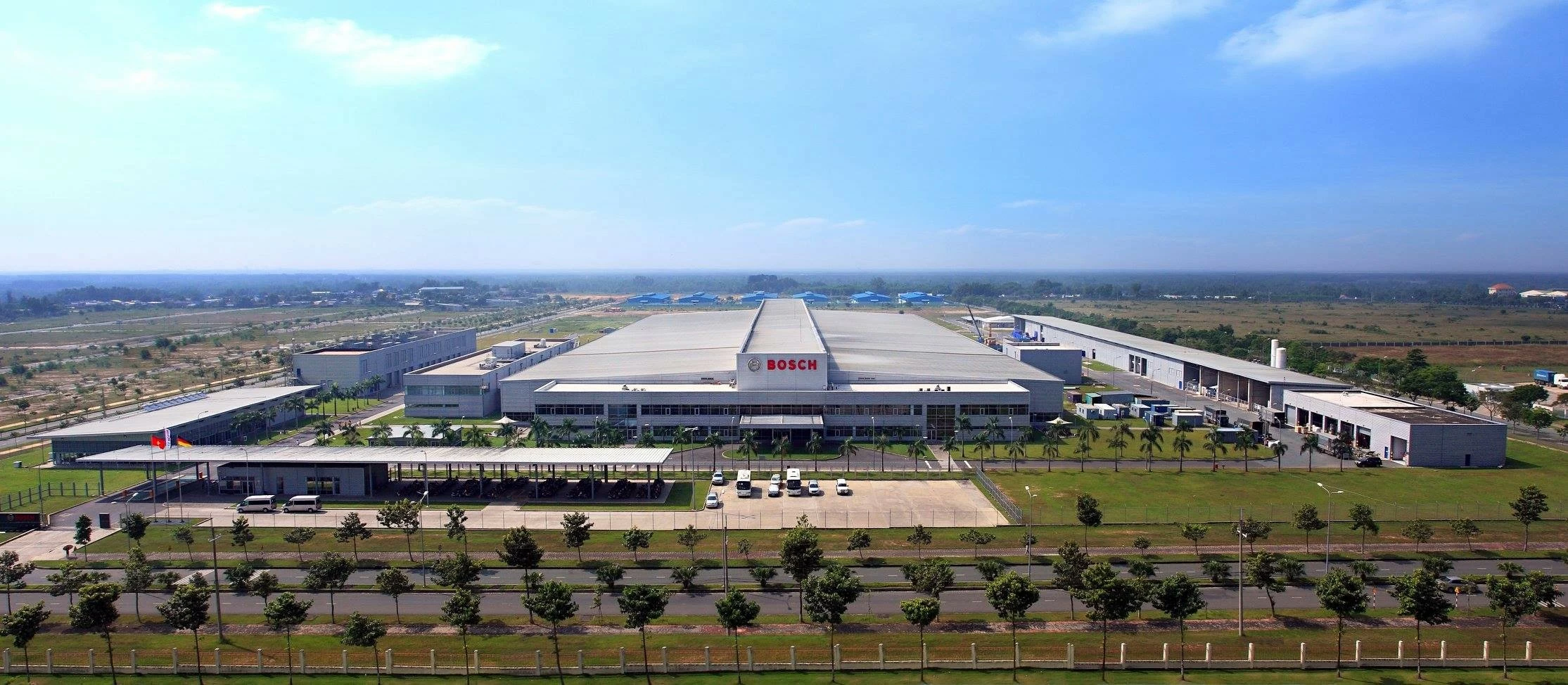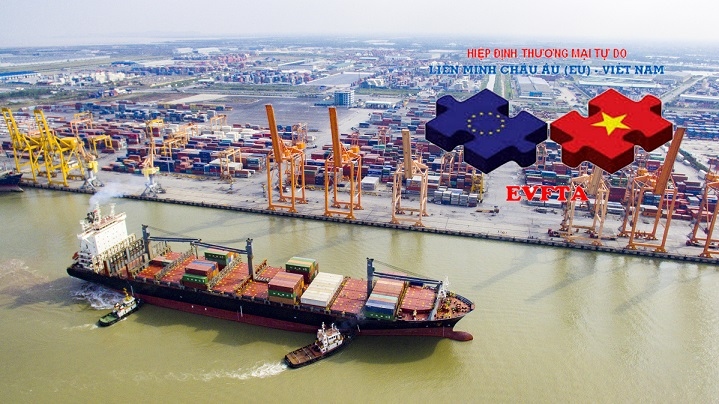
EVFTA - undoubtedly a prestigious success for Vietnam
Latest
In an interview with The World and Vietnam Report, Prof. Dr. Andreas Stoffers, Vietnam business expert and economist currently living in Germany, stated that Vietnam's economic data in 2024 has proven the benefits of the "historic agreement" with the European Union (EU).
 |
| GS. TS. Andreas Stoffers. |
In 2020, Vietnam was the first developing country in the world to sign a Free Trade Agreement (FTA) with the European Union (EU) - EVFTA. To sign the EVFTA, Vietnam had to go through a process that spanned up to 9 years. This is considered a great success of Vietnam in the process of international economic integration, raising the national position and creating new opportunities and destiny for the country. In your opinion, what makes Vietnam special that EU partners support the EVFTA?
That's right, the negotiation period for the EVFTA was indeed long. But this is in view of the fact that the trade agreement was very far-reaching for both sides. In fact, a total of 27 European nations with different interests involved in economic relations with Vietnam. Fortunately, this agreement was ratified in 2020. It is important to note that although the European Union would like to have free trade agreements with as many countries as possible, the immense effort involved in conducting negotiations makes it impossible to negotiate many FTAs at the same time.
In this respect, Vietnam can be proud that at the time the European Union chose Vietnam as the country in Southeast Asia with which such a modern agreement should be concluded, it is a tribute to what Vietnam has achieved over the years in terms of economic freedom and openness. But it is also a sign that Vietnam is a very important bridgehead for the European economy in the Asia-Pacific region. All this makes Vietnam so special and has contributed massively to the fact that ultimately all EU partners have supported the EVFTA.
As of August 1, 2024, Vietnam and the EU have spent four years implementing the "historic agreement" EVFTA. How do you evaluate the results that this agreement brings to the EU and Vietnam?
Now that the EVFTA has been in force for four years, I can justifiably say that this agreement is positive for both sides. It has created mutual trust between the two sides, both during the many years of negotiations and in the years following ratification. By being one of the countries selected for such a modern FTA, Vietnam has been able to make the headlines in the press and get into the consciousness of the European public and European businesses.
For Vietnam, the EVFTA was and is certainly a prestigious success. In addition, Vietnam has direct access to 27 European Union markets. Thanks to the high standards that the EVFTA demands of Vietnam in its business dealings with the European Union, Vietnam's economy has not only been able to expand trade, but has also gained clear advantages in increasing its competitiveness in global trade.
The economic figures this year speak for themselves: The results of the Vietnamese economy in the first half of 2024 are encouraging, with GDP rising by 6.42 percent. Expectations for 2024 are 6.5-6.7 percent per year. All three pillars of the Vietnamese economy - investment, trade and consumption - are showing a strong upward trend. All in all, they are great conditions for Vietnam to expand its trade with the EU based on EVFTA.
Besides, disbursed foreign direct investment (FDI) amounted to 12.55 billion US dollars, an increase of 8.4 percent. It is particularly noteworthy that 80 percent of registered FDI is concentrated in places with excellent infrastructure, skilled human resources and local administrations committed to rational investment promotion. Improvements can also be seen in the quality of foreign direct investment, which includes high-tech products and environmental protection, especially in industry and manufacturing, accounting for 78.5 percent of foreign direct investment in six months.
 |
| Bosch factory in Long Thanh Industrial Park, Long Thanh district. (Source: Bao Dau tu) |
EVFTA has proven its success in helping Vietnam overcome many of the world's "headwinds" such as the COVID-19 pandemic, inflation...Among the achievements from EVFTA, which area is most successful thanks to this agreement?
I think it is difficult to judge which areas have benefited most from the EVFTA, as they are so diverse. It deserves mentioning that Vietnam had a positive trade balance of $14.1 billion in the first six months of 2024, with EU playing an essential role, having clearly more imports from Vietnam than exports to the country. From January to April of 2024, Vietnam's trade surplus with the EU was estimated to be worth US$11.4 billion, which increased by 16.7% compare to last year.
In addition to the trade policy advantages, the area of foreign direct investment should not be neglected. Here there are spillover effects from trade policy to investment policy, especially when European companies have their production site in Vietnam and export from here to other countries in not only the region, but also European Union, such as BBraun, Tesa, Lego and Bosch.
On the business side, in your opinion, what "sweet fruits" do Vietnamese and EU businesses reap thanks to EVFTA?
The above-mentioned spillover effects on various business sectors of Vietnamese and European companies can easily be described as the "sweet fruits" of the EVFTA. This free trade agreement, which can be described as a "new generation free trade agreement" due to its far-reaching content, has massively increased Vietnam's reputation and awareness in Europe.
I can say this from my own experience, as I can directly compare my time in the management of Deutsche Bank Vietnam 2009-2012 and my current time in Vietnam, interest in Vietnam in my home country Germany, for instance, has increased massively since EVFTA is ratified.
It cannot be denied that when traveling on the EVFTA "highway", Vietnam and the EU still encounter certain difficulties. What are those difficulties?
It goes without saying that difficulties can also arise on the common path of the EVFTA. This is in the nature of things, as geopolitical and global economic circumstances can change on the one hand, but on the other hand framework conditions in the individual signatory countries can also change. For example, Vietnam is certainly more economically developed today than it was at the beginning of the EVFTA negotiations around 2010. Thus, Vietnam is placing a greater focus on high-tech products. Besides,Vietnamese companies are now much more economically active within the European Union than before, which makes the EVIPA even more attractive for them, and also raises the foundations of the EVFTA to a new level.
At the "business micro level", difficulties arise for Vietnamese companies in particular is that Vietnam is not yet sufficiently present in the European public business world. Competition with other countries in the region is also very high. Vietnamese companies have to deal with the high standards of the EVFTA even more than in the past. Vietnamese products are mostly sold in a few major EU nations, like the Netherlands, Germany, France, and Italy, and nevertheless hold a relatively small market share.
As for European businesses, they also face many challenges such as complicated regulations, local authorities' disregard for international standards, and stakeholders' inadequate comprehension of the agreement. Other technical obstacles that impede trade including certification and product testing, as well as problems with customs clearance and valuation.
However, organizations such as VCCI can make an important contribution to this, as can EuroCham and the national European chambers of commerce and business organizations. This will make it easier to overcome arising difficulties, especially in the sector of knowledge management.
 |
| Both agreements, the EVFTA and the EVIPA, should be seen as a single entity in a certain sense. After all, trade and investment often go hand in hand. (Source: Bo Cong Thuong) |
In the coming time, what does Vietnam need to do to improve difficulties and take full advantage of the benefits of EVFTA?
What Vietnam can still improve in order to take full advantage of the EVFTA is to improve its knowledge of European Union standards. I think that especially in section 13 of the EVFTA agreement, which deals with working conditions and CSR aspects, there is still a lot to be done on Vietnamese side. Newly emerging regulations from the European Union or EU member states also need to be taken into account. I would like to highlight Germany's Supply Chain Act, which is in line with European Union directives and can be challenge for business partner. Vietnamese companies need to be well prepared if they want to enter into trade and business relations with European companies.
Of course, the same applies to the European side, which needs a deeper understanding of the Vietnamese market in order to be successful here.
What do you think about the prospect of signing the Vietnam - EU Investment Protection Agreement (EVIPA)? If signed, along with EVFTA, how will these two Agreements impact Vietnam's economy and investment cooperation between the two sides?
Both agreements, the EVFTA and the EVIPA, should be seen as a single entity in a certain sense. After all, trade and investment often go hand in hand. European companies that have invested or are planning to invest in Vietnam need the legal certainty of an investment protection agreement. Once they have invested in Vietnam, the next step is of course the import of certain goods, but above all the export of finished products from Vietnam, which is where the EVFTA comes in. Trade can provide a boost for investment.
Negotiating and concluding both agreements was and is not easy, as both sides have to approach each other. In the case of the EVIPA, there is also the necessary extraterritorial jurisdiction for disputes between companies and the state, through which both the EU and Vietnam transfer and cede parts of their own jurisdiction to the outside world.
According to the Vietnamese Ministry of Planning and Investment (MPI), EU companies initiated 157 new projects in Vietnam in 2023 and invested an additional 1834 million US dollars in registered capital in these new companies and in several existing companies. This made the EU one of the top 7 foreign investors in Vietnam in 2023. The main beneficiaries of FDI were wholesale and retail trade as well as scientific and technological activities.
The total cumulative EU investment in Vietnam amounts to around 31 billion US dollars, spread over 2450 projects.
To put it in a nutshell, as the influence of an open trade and investment policy has proven to have positive effects on a country's economy, one can only hope that the EVIPA will also be signed and ratified quickly.
Thank you so much!





















